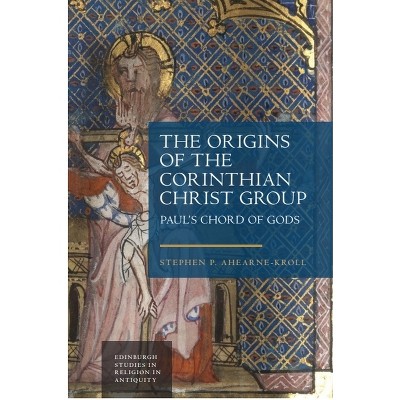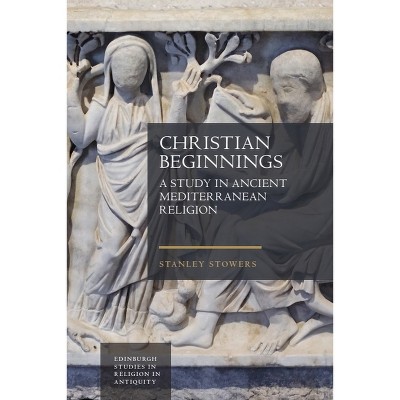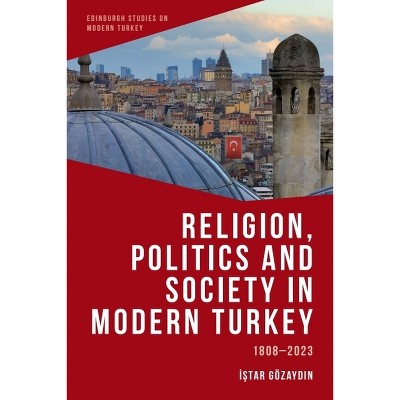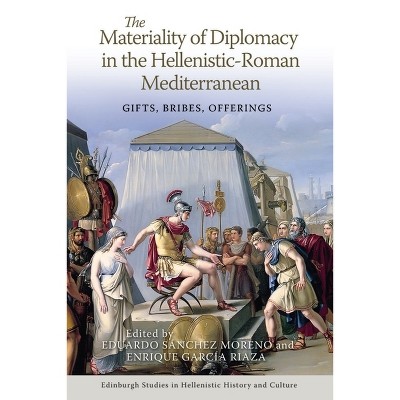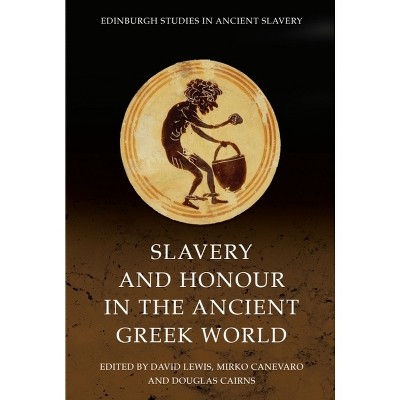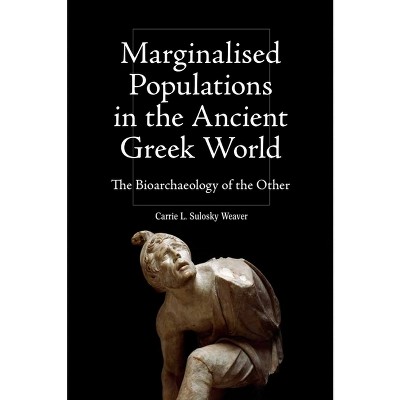Contested Cures - (Edinburgh Studies in Religion in Antiquity) by Megan Nutzman (Paperback)

About this item
Highlights
- In the ancient Mediterranean world, individuals routinely looked for divine aid to cure physical afflictions.
- About the Author: Megan Nutzman is Assistant Professor of History at Old Dominion University, USA.
- 272 Pages
- History, Ancient
- Series Name: Edinburgh Studies in Religion in Antiquity
Description
About the Book
Studies the people, places and objects credited with ritual cures and the elite rhetoric critical of these cures
Book Synopsis
In the ancient Mediterranean world, individuals routinely looked for divine aid to cure physical afflictions. Contested Cures argues that the inevitability of sickness and injury made people willing to experiment with seemingly beneficial techniques, even if they originated in a foreign cultural or religious tradition. With circumstances of close cultural contacts, such as prevailed in Palestine, the setting was ripe for neighbouring Jews, Samaritans, Christians, Greeks and Romans to borrow rituals perceived to be efficacious and to alter them to fit their own religious framework. As a result, they employed related means of seeking miraculous cures. The similarities of these rituals, despite changes in the identity of the divine healers that they invoked, made them the subject of polemical discourse among elite authors trying to police collective borders. Contested Cures investigates the resulting intersection of ritual healing and communal identity.
This innovative study synthesises evidence for the full range of healing rituals that were practised in the ancient Mediterranean world. Examining both literary and archaeological evidence, it considers ritual healing as a component of identity formation and deconstructs the artificial boundary between 'magic' and 'religion' in relation to ritual cures.
From the Back Cover
Studies the people, places and objects credited with ritual cures and the elite rhetoric critical of these cures In the ancient Mediterranean world, individuals routinely looked for divine aid to cure physical afflictions. Contested Cures argues that the inevitability of sickness and injury made people willing to experiment with seemingly beneficial techniques, even if they originated in a foreign cultural or religious tradition. With circumstances of close cultural contacts, such as prevailed in Palestine, the setting was ripe for neighbouring Jews, Samaritans, Christians, Greeks and Romans to borrow rituals perceived to be efficacious and to alter them to fit their own religious framework. As a result, they employed related means of seeking miraculous cures. The similarities of these rituals, despite changes in the identity of the divine healers that they invoked, made them the subject of polemical discourse among elite authors trying to police collective borders. Contested Cures investigates the resulting intersection of ritual healing and communal identity. This innovative study synthesises evidence for the full range of healing rituals that were practised in the ancient Mediterranean world. Examining both literary and archaeological evidence, it considers ritual healing as a component of identity formation and deconstructs the artificial boundary between 'magic' and 'religion' in relation to ritual cures. Megan S. Nutzman is Assistant Professor in the History Department at Old Dominion University.Review Quotes
Contested Cures is an exceptional work of scholarship on healing practices in the Roman world. Nutzman's regional focus on Roman Palestine, along with her judicious comparative methodology, allow her not only to resist the conventional impulse to study rituals of healing within silos of religious tradition, but also to challenge facile distinctions among the domains of religion, magic, and medicine. What emerges is a fascinating and compelling portrait of how the diverse inhabitants of the region turned for treatment to similar--and, in many cases, the very same--objects, places, and people, even as religious elites sought to segment this shared therapeutic landscape and thus to police the boundaries between communities.--Ra'anan Boustan, Research Scholar, Princeton University
Contested Cures is an ambitious, empirically rigorous, and theoretically sophisticated interdisciplinary book which decenters the voices of ancient intellectual elites and focuses instead on the lived experience of ordinary people who drew freely upon a range of shared ritual objects, practices, and specialists to ameliorate their physical and psychic suffering.
--Elizabeth Castelli, Barnard CollegeAbout the Author
Megan Nutzman is Assistant Professor of History at Old Dominion University, USA. She is the author of a number of journal articles including in Jewish Studies Quarterly and Greek Roman and Byzantine Studies. This is her first book, based on her PhD, which she achieved in 2014.
